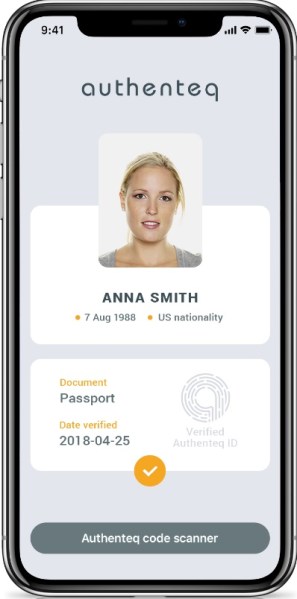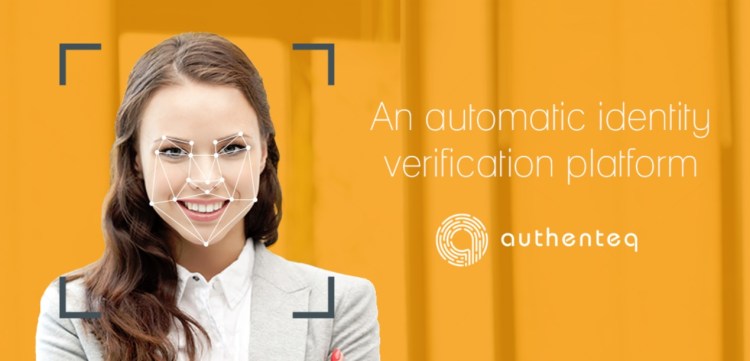Authenteq has unveiled Trollteq, an identity management solution based on blockchain that can help stop one of the great problems of the Internet: online trolling.
Trolling has become endemic across platforms ranging from Twitter and Facebook to online news sites. Internet haters have made many previously family-friendly and socially responsible websites into havens for online abuse. No matter how many troll accounts are deleted by the provider, they still return under a new name or handle and continue their vile behavior, threats, and harassment.
With Trollteq, once a user is banned, they are gone for good and cannot re-register under a false name or identity. It requires buy-in from platforms that allow some degree of anonymity or privacy, but Authenteq CEO Kári Thor Runarsson thinks the trade-off isn’t too bad, given the gain in troll-free results.
“With Authenteq, you are bound to an identity,” Runarsson said in an interview with VentureBeat. “But you are in control. We don’t know your identity. But we know you are a real person. Blockchain allows us to do that.”
June 5th: The AI Audit in NYC
Join us next week in NYC to engage with top executive leaders, delving into strategies for auditing AI models to ensure fairness, optimal performance, and ethical compliance across diverse organizations. Secure your attendance for this exclusive invite-only event.
Trollteq uses Authenteq’s identity management system, which requires people to verify that they are human in a sign-up process that takes 90 seconds. You have to use your smartphone to capture your image, selfie style. Then you take a picture of your valid driver’s license or some other form of sovereign identification. Authenteq verifies that the images are of you, and that the ID card is legitimate. Then it associates you with a login account that you are creating, without giving away your identity.
Reykjavik, Iceland-based Authenteq will then verify to a third party — in this case, the platform that you are signing up to join — that you are a real human. You are only allowed to use your identification to sign up for one account. You can’t use the same identification to sign up for a new account if you are banned. That puts a stop to the behavior where a banned troll will keep opening new accounts to continue bad behavior on the site.

Above: You can sign in to verify your identity with Authenteq via smartphone.
Authenteq stores a hashstring on the blockchain that, if checked, simply verifies that you are a human who opened an account. It will not keep your picture or your identification information once it has been put through the verification. If it ever becomes necessary to re-verify your identity, it will look up the hashstring on the blockchain, which is a secure and transparent decentralized digital ledger. With passports, Authenteq can read an encrypted chip for verification.
By not storing the data, Authenteq ensures that it won’t force customers to give up their privacy. For instance, if law enforcement comes to the website and demands to know the identity of a person behind an account, neither the platform owner nor Authenteq will be able to turn that information over because they won’t have it. This returns control of identity to the user, Runarsson said.
Of course, this won’t be satisfactory to some people, particularly those who want nothing to do with turning over their digital information or picture to any online entity. Runarsson acknowledges it will be difficult for some companies to require users to provide such verification. However, governments and new laws could very well require websites to verify that their users aren’t children or have been verified in some way.
“With Twitter, you have to sign up with a real identity and use a real email,” Runarsson said. “If you are banned, you set up another account with a throwaway email.”
But Twitter has accounts with a “verified” status, like the real Donald Trump. In this respect, it has to collect the same kind of identification that Authenteq does. Dating websites could also use this kind of identification system to ensure someone is real and not a bot.
Under this system, all personal user information is user-owned, user-controlled, and completely inaccessible to anyone else — including Authenteq. With an Authenteq ID, it’s your choice as to how you verify identity or parts of identity to any third party. Trollteq can provision a digital biometric passport on any website and the ID is user-owned and controlled, with all personal information kept on the blockchain.
“There are use cases where you wouldn’t use Authenteq,” Runarsson said. “But mimicking real life, it is adding a little layer of identity on top of the Internet.”
After initial signup, it takes the user under three seconds to connect their ID to any additional online profile, account, or identity a user has, all without using a password. Trollteq incorporates exceptionally robust fraud and privacy protection tools, including liveness detection — advanced technology that makes sure only real live human beings are signing up, as opposed to static photos. Since Trollteq does not save any data about the user, there is no threat of a database breach leaking personal information.
“The sad truth is that trolls have taken over a large swath of the internet. Our mission is to remove their greatest asset — their ability to hide behind fake names and identities, while still protecting their identities and freedom of speech,” said Runarsson. “Any website or commenting system such as Disqus can instantly add Trollteq to their site or customers — we can scale up to a billion identity authentications in under 90 seconds. This means we are robust enough to handle even Twitter or Facebook user IDs.”
Authenteq was started two years ago, and it has raised $1.9 million in funding from well-known venture capitalist Tim Draper and others. The company has 17 employees. There are other applications for the technology as well, including verifying someone’s identity to unlock a car door.

